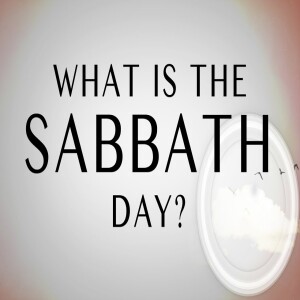
Saturday Jun 11, 2022
What is the Sabbath?
What is the Sabbath?

In this Bible teaching delivered by Matthew Vander Els at Founded in Truth Fellowship, the concept of the Sabbath is explored as more than just a weekly day of rest. It is presented as a central theme woven throughout the entire biblical narrative, beginning with creation and pointing towards an ultimate, eternal rest found in Jesus Christ (Yeshua). The message emphasizes understanding the Sabbath not merely as a commandment to be followed, but as a profound invitation to enter into God's rest, reflecting His character and His plan for humanity.
The teaching begins by examining the creation account in Genesis 1 and Genesis 2. God created the heavens and the earth in six days and rested on the seventh day, making it holy. Notably, unlike the conclusions of the first six days ("And there was evening and morning"), the seventh day has no such ending, suggesting an ongoing, eternal nature of God's rest. This initial act of divine rest introduces the concept of the Sabbath from the very beginning of the biblical story.
Furthermore, the speaker highlights the unique portrayal of humanity in Genesis 1. Instead of being created as slaves to work for the gods, as in other ancient Near Eastern creation myths like the Babylonian Enuma Elish, humans are created in God's image (the Hebrew word "Selim") to be His representatives and even to co-rule over creation. This sets a stark contrast where the biblical God desires relationship and shared dominion with humanity, rather than servitude.
The Sabbath commandment is formally introduced to the Israelites in Exodus 16 in the context of gathering manna, where they were instructed to gather twice as much on the sixth day because the seventh day would be a Sabbath rest. Later, it is included in the Ten Commandments in Exodus 20, with the justification that God rested on the seventh day after creating the world in six days. Deuteronomy 5 provides a slightly different reason, linking the Sabbath to the remembrance of Israel's liberation from slavery in Egypt. Both reasons work together, highlighting God's example and His act of redemption.
Application for Everyday Life:
- Recognize the human need for rest in a society that often glorifies constant work and productivity. The Sabbath provides an opportunity to cease from labor and reflect.
- Find your ultimate rest in Jesus Christ. He is presented as the Lord of the Sabbath, and true spiritual rest is found in a relationship with Him.
- Remember your freedom from spiritual "slavery". Just as the Sabbath reminded Israel of their liberation from Egypt, it can remind believers of their freedom from sin and the burdens of striving for self-righteousness.
- Look forward to the eternal rest promised in God's kingdom. The weekly Sabbath can serve as a foretaste of this ultimate rest.
- View the Sabbath as an invitation to dwell with God. It is a time to focus on spiritual connection and communion with Him.
- Consider the broader implications of Sabbath rest for your life and community. This includes examining whether you are contributing to exploitation or injustice and whether you are caring for the vulnerable. True Sabbath rest should align with God's character of justice and mercy.
- Examine your motivations for observing any day of rest. Is it out of obligation to a past law, or is it an expression of the present reality of rest found in Christ and a longing for the future eternal Sabbath?
To find more Bible Teachings, click the link.
References:
Bible Verses:
- Genesis 1
- Genesis 2
- Exodus 16
- Exodus 20
- Deuteronomy 5
- Leviticus 23
- Leviticus 25
- Leviticus 26
- Numbers 7
- Psalm 95
- Isaiah 56
- Isaiah 61
- Jeremiah 31
- Ezekiel 36
- Luke 4
- Hebrews 3
- Hebrews 4
- 2 Chronicles 36
- Judges 19
- 1 Kings
Books and Resources:
Note: This article contains affiliate links.
No comments yet. Be the first to say something!